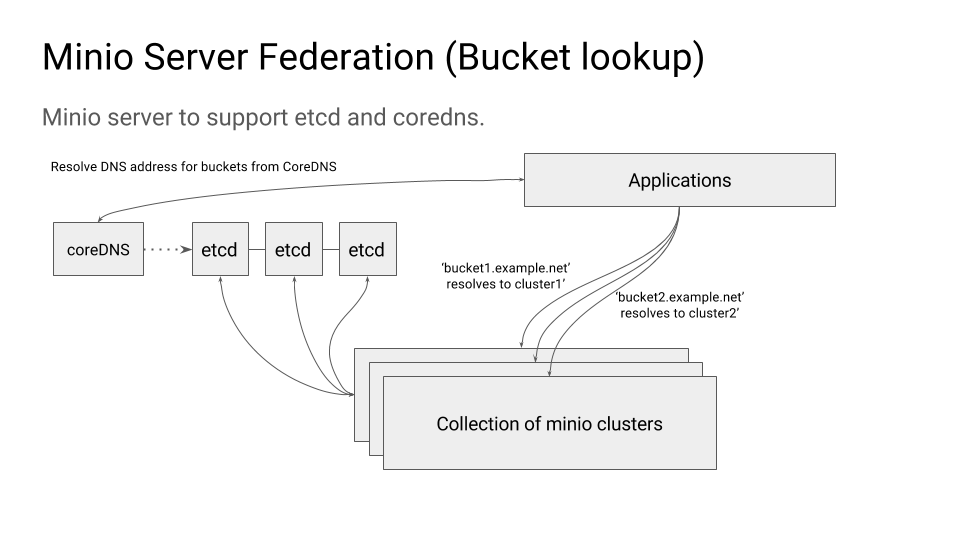Federation
There are primarily two types of federation
- Bucket lookup from DNS
- Bucket is shared across many clusters
This document will explain about how to configure Minio to support Bucket lookup from DNS style federation.
Federation (Bucket Lookup)
Bucket lookup federation requires two dependencies
- etcd (for config, bucket SRV records)
- coredns (for DNS management based on populated bucket SRV records)
Architecture
Run Multiple Clusters
cluster1
export MINIO_ETCD_ENDPOINTS="http://remote-etcd1:2379,http://remote-etcd2:4001"
export MINIO_DOMAIN=domain.com
export MINIO_PUBLIC_IP=44.35.2.1
minio server http://rack{1...4}.host{1...4}.domain.com/mnt/export{1...32}
cluster2
export MINIO_ETCD_ENDPOINTS="http://remote-etcd1:2379,http://remote-etcd2:4001"
export MINIO_DOMAIN=domain.com
export MINIO_PUBLIC_IP=44.35.2.2
minio server http://rack{5...8}.host{5...8}.domain.com/mnt/export{1...32}
In this configuration you can see MINIO_ETCD_ENDPOINTS points to the etcd backend which manages Minio's
config.json and bucket DNS SRV records. MINIO_DOMAIN indicates the domain suffix for the bucket which
will be used to resolve bucket through DNS. For example if you have a bucket such as mybucket, the
client can use now mybucket.domain.com to directly resolve itself to the right cluster. MINIO_PUBLIC_IP
points to the public IP address where each cluster might be accessible, this is unique for each cluster.
NOTE: mybucket only exists on one cluster either cluster1 or cluster2 this is random and
is decided by how domain.com gets resolved, if there is a round-robin DNS on domain.com then
it is randomized which cluster might provision the bucket.
TODO: For now the control to create the bucket from a client to the right cluster using region paramter
is not implemented yet.
